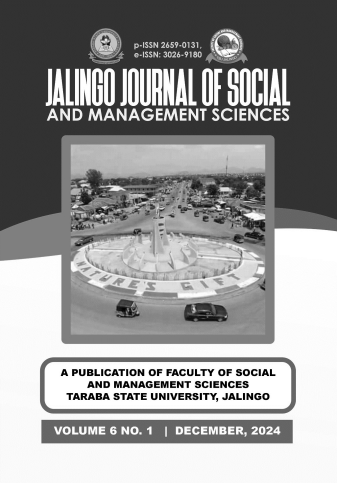Determinants of Auditor Expectation Gap in Nigeria
Keywords:
Audit Expectation Gap, Audit Independence, Audit Performance, Effective Internal Control, Expanded Audit ReportAbstract
Auditor expectation gap is the difference between the roles performed by auditors and the roles users of financial statements want auditors to perform. Therefore, the issue of auditor expectation gap has been a contemporary issue in auditing literature. The study empirically examined the determinants of auditor expectation gap in Nigeria within the third quarter of 2024. The study used survey research design while primary data was used as the method of data collection. The sample population is made up of 150 respondents comprising of staff of the Bursary and Audit Department of University of Benin, Edo State, Nigeria. Ordinary Least Square regression technique was used in testing the formulated hypotheses. The empirical results revealed that audit independence has an insignificant positive influence on auditor expectation gap in Nigeria, effective internal control has a significant positive influence on audit expectation gap in Nigeria, audit performance has a significant positive influence on auditor expectation gap in Nigeria and expanded audit report has an insignificant positive influence on auditor expectation gap in Nigeria. The study concludes that audit performance and effective internal control are potent drivers of reducing auditor expectation gap in Nigeria among the variables of interest explored in this study. It is therefore recommended that policy makers should ensure that audit performance and internal control systems be enhanced in public sector organizations in Nigeria so as to reduce the presence of auditor expectation gap. Furthermore, less emphasis should be placed on both audit independence and expanded audit report, since their presence tends to increase auditor expectation gap in Nigeria.

Downloads
Published
Issue
Section
License
Copyright (c) 2024 JALINGO JOURNAL OF SOCIAL AND MANAGEMENT SCIENCES

This work is licensed under a Creative Commons Attribution-NonCommercial 4.0 International License.
